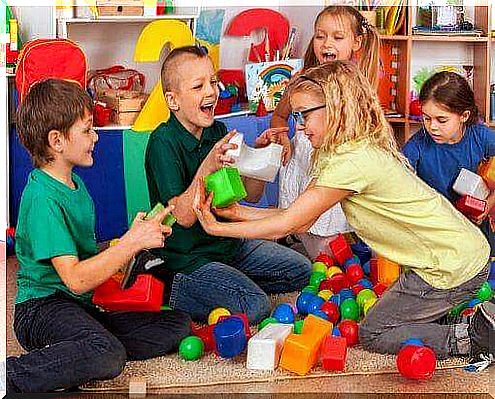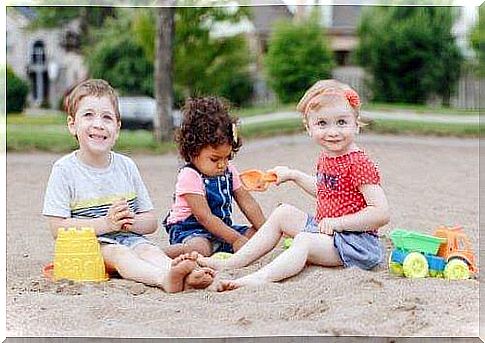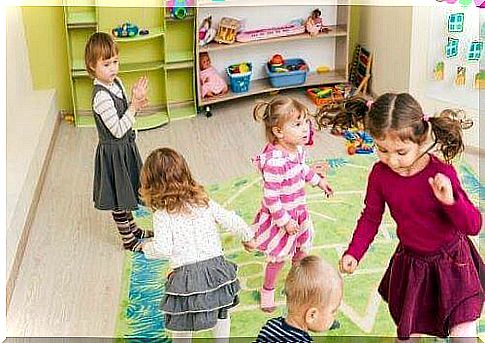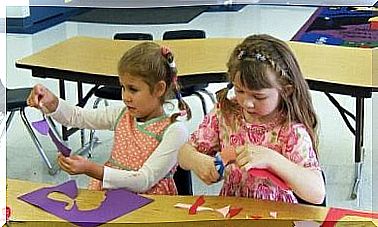Teach Social Skills: Empathy And Self-confidence

By teaching social skills to children, you contribute to emotional health and good conflict resolution. The basis for these skills is empathy and self-esteem, rooted in a deep sense of self-confidence. Most importantly, teachers and caregivers can help students acquire and refine these social skills.
The first step in teaching social skills is that adults must also demonstrate such skills. Thus, all parents and caregivers, when following the recommendations in this article, should also reconsider their own ways of engaging with people around them.
How to teach social skills to children?
It is obvious that children use different ways of dealing with other children and problems, whether they are at home or where there are groups of children interacting. Take a few moments each day to reflect together, as a group, on some of the ways we choose to handle things in society. It is a really valuable exercise for teaching social skills to children.
1. What are social skills and why do we need them?
A good way to introduce social skills to children is to analyze how social skills contribute to improving our collective lives. Depending on the age of the children, you can do this with the help of games, games, stories, movies or even assigned reading for slightly older children.
2. Only choose to introduce one skill at a time
It is not very effective to introduce a whole lot of social skills at once. It is best to choose one skill to focus on at a time and then concentrate your business or lesson plan on the one skill.
Dedicate, for example, a week to thinking about “what it means to share and that others share with me”. In this way, what the caregiver goes through is assimilated on a deeper level and each child develops their own personal way of applying these possibilities.
3. Reflect deeply on each ability to interact socially
There are different ways to teach social skills to children. The key is that it is the children themselves who should reflect on this. They should also be allowed to express their own opinions without being judged.
A good exercise is to use a graph with two columns. The column on one side shows each social ability. In the column on the other side, you can list the examples of social methods that the children themselves suggest.

4. Practice what they are learning
You should of course adjust the way you present information to suit each age group. Practicing what they have learned is the best way to truly absorb and strengthen social skills. Role-playing and question-and-answer are excellent resources for that.
5. Pause and reflect
Taking a break after each social skill they learn gives children the opportunity to take what they learned and put it into practice. In this way, when you come across cases where a child is actively using a social skill that he or she has learned, you can reflect together on how social competence was applied in that situation.
It is helpful to invite children to reflect on their own behaviors. They can also examine their thoughts both as an individual or together as a group. In addition, social skills, such as the ability to negotiate, have a very positive impact on children’s development, even in school.
Social skills require a positive self-image
Another aspect used to teach children social skills has to do with the image they construct of themselves. All children should know how to value themselves, love themselves and defend their rights and interests.
If there is any doubt about how to teach love for oneself, we can summarize the best approach as: “Be the best example you can be.” It is also good to consider the following:
- It is not helpful to compare children with each other
- Children need quality time
- Children need different opportunities to practice their skills
- Acknowledge their efforts and strengths
- Encourage their autonomy
In short, being confident and having good self-confidence has to do with ethical principles that require you to value your own rights while recognizing the rights of others. In fact, for very young children, valuing their own rights usually involves a sudden loud scream that scares the perpetrator.

Social skills require self-confidence
While children acquire social skills, it is good to reflect on the importance of being confident and having a positive self-image. Having control over your own emotions requires the ability to be confident. In addition, self-confidence is also important when engaging in conflict resolution, negotiation and persuasion.
In summary, teaching social skills to children is also a challenge for adults. Starting this learning process early and away from home is the best gift you can give them. The basic values teach children to be autonomous and engage in respectful dialogue. In addition, teaching social skills to children also requires working carefully with the children so that they can identify, express and channel their emotions.








